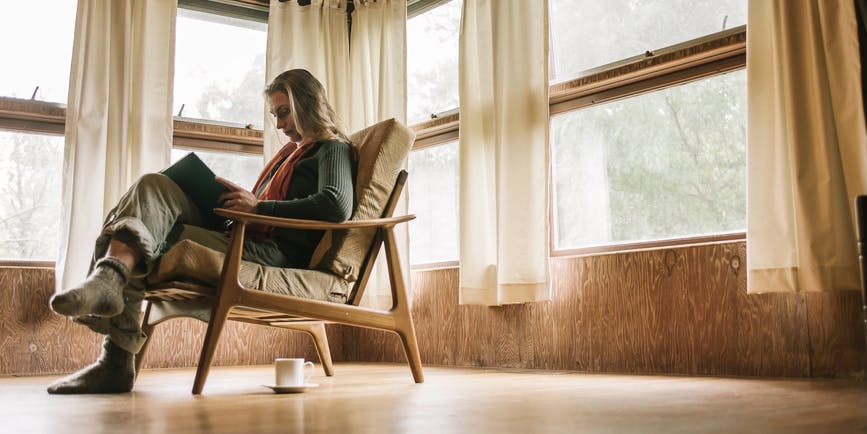
What do we know about long Covid in 2023?

Welcome to the Dr. B Newsletter, a curated healthcare email that delivers vetted reads on whole-body health. As we hit the three-year pandemic mark, around 65 million people worldwide struggle with long Covid. That means at least 10% of infections lead to life-altering chronic illness. So this week, we’re sharing long Covid updates, personal stories + resources. Plus, Covid-19 news to know. But first…
- The Checkup: facing the hard stuff
- Long Covid: why + who + how to help
- Covid-19: three years in and...
- We Now Treat: hair loss! (like for that ↓)
The Checkup
- Why Covid-19 causes hair loss + what to do about it (↑ ↑ ↑ )
- Gwyneth Paltrow’s long Covid diet is facing severe backlash
- Have ADHD? Scroll this roundup of funny + relatable tweets
- Darn. Studies imply vitamin D is not a mental health miracle pill
- Like humans, anxiety in dogs stems from neural dysfunction
- 6 former smokers share how they kicked the butts for good
- Over breakfast? Here’s 50+ protein-packed morning recipes
What we know (+ don't know) about long Covid

Don't know what long Covid is? Here’s a primer.
It can strike anyone. But most patients are 36-50 years old + had mild, non-hospitalized infections. Risk is highest after your first infection but can happen after your second or third. The odds are lower with Omicron than they were with prior variants. Taking Paxlovid also reduces risk. Dozens of symptoms affect several organ groups—and we don’t know why they hit or don’t hit an individual. But inflammation has something to do with it, with brain swelling and gastrointestinal issues knocking other systems off course.
Learn more at this epidemiologist’s easy-to-understand update.
Long Covid voices

As we covered last week, trying to articulate suffering can feel futile. The same goes when trying to understand an illness we’ve never had. But words still have power. So here are a few from long Covid patients:
“It feels like your body’s ability to produce energy has just completely shut off.” “It’s no way to live.” “People don’t realize how much pain is involved.” “Doctors don’t know what to do with you.” “Everyone else is leading their lives and I’m not, and I don’t know if I ever will again.” “You can say brain fog, but that doesn’t come close to doing it justice.” “I carried the guilt that my body—once strong and capable—was no longer agile enough to climb three flights of stairs…” “He said I seemed heavy, faint, deeply exhausted, muted…”
Dig into their stories:
- People living with long COVID explain how the disease changed their lives in this PBS video
- Heather Hogan shares their 3-year journey in The Soft Butch That Couldn’t
- Chimére L. Smith contemplates a new direction in A Black Woman Grieves the Toll of Long Covid
- Jennifer Senior applies humor to etiquette in What Not to Ask Me About My Long Covid
Resources to help now

If you or someone you love struggle with long Covid, we hope these resources will help improve your experience.
- Find the right doctor to help you manage symptoms + treatments.
- Find a therapist to help you navigate this unique experience.
- Join an online support group for solidarity + new perspectives.
- Learn how to support loved ones in ways that truly help.
- Reclaim your kitchen with advice from patients + physicians.
- Read The Long Covid Survival Guide by experts + advocates.
Healthcare 411
5 things we’ve learned from Covid in three years (Scientific American). MRNA vaccines are safe + effective in reducing risk. Masks mitigate spread—when worn correctly. Improving indoor air quality is vital in reducing transmission. Wastewater tracking systems are handy tools for predicting surges. Countries must continue genomic surveillance to best face new + potentially dangerous variants.
Paxlovid not linked to Covid-19 rebound, FDA says ahead of meeting to consider drug’s full approval (CNN). In clinical trials, Covid-19 rebound happened in 10-16% of participants—whether they got Paxlovid or a placebo. Paxlovid is effective against the Omicron variants + for those at high risk of severe illness. On its own, it's not affiliated with any safety concerns. (There are concerns for drug interactions.) Here’s more about Covid-19 medications.
A new universal Covid-19 vaccine could stop future variants in their tracks (Inverse). A team of researchers is working on a vaccine that encourages our T cells to fight tiny chunks of viral protein in various parts of the coronavirus genome—not just the spike protein—that will work more consistently across people of varying immune histories + responses. It’s nowhere near human trials. But the complex formulation could eventually mean broad coronavirus protection.
Sign up for the free Dr. B newsletter for a weekly report on the latest in healthcare + research-based advice for staying healthy and mentally well.
